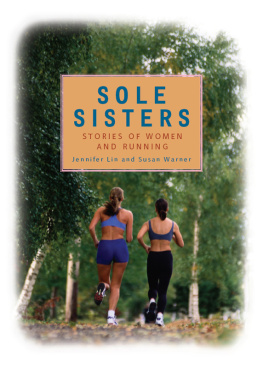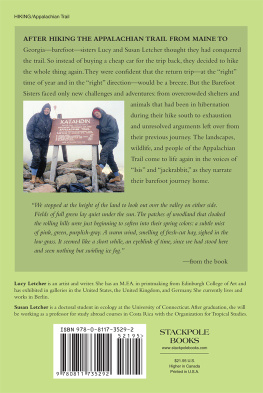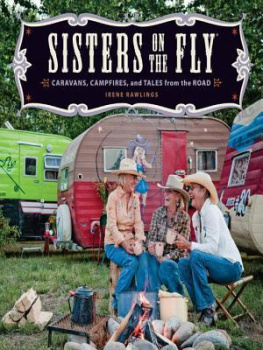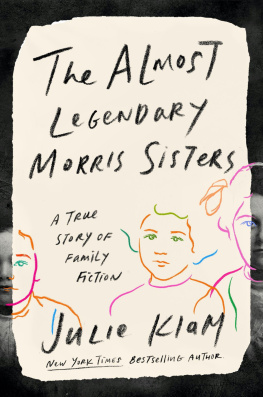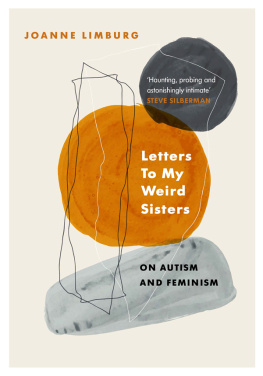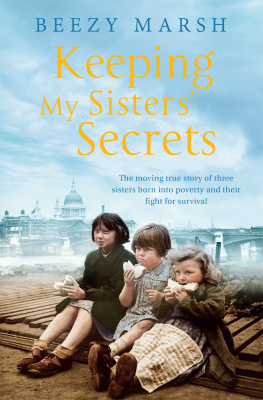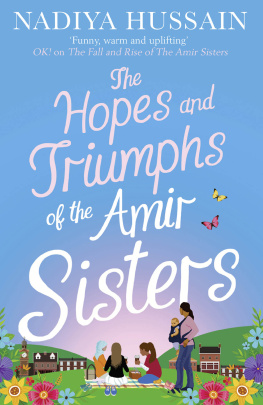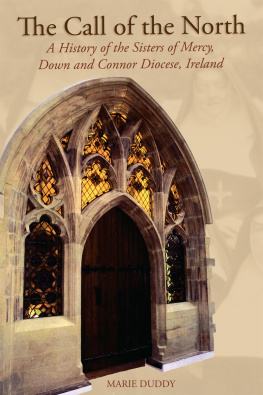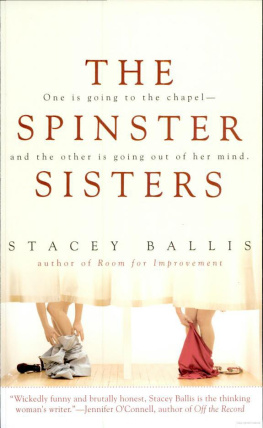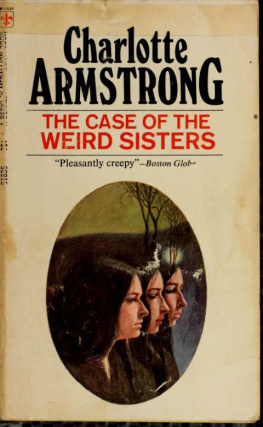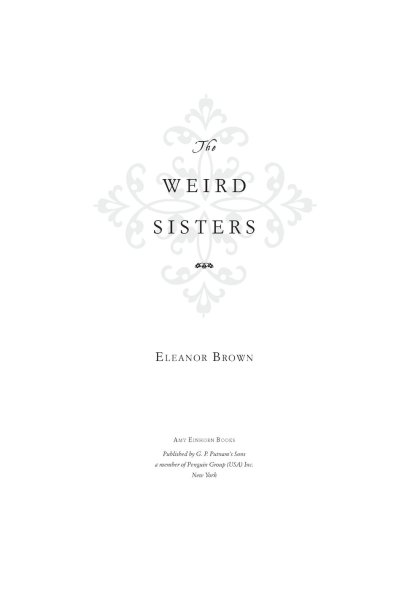Table of Contents
TO CHRIS
For springtime, for a rock-and-roll show, forever
But we only called the fire brigade, and soon the fire engine came and three tall men in helmets brought a hose into the house and Mr. Prothero got out just in time before they turned it on. Nobody could have had a noisier Christmas Eve. And when the firemen turned off the hose and were standing in the wet, smoky room, Jims Aunt, Miss. Prothero, came downstairs and peered in at them. Jim and I waited, very quietly, to hear what she would say to them. She said the right thing, always. She looked at the three tall firemen in their shining helmets, standing among the smoke and cinders and dissolving snowballs, and she said, Would you like anything to read?
DYLAN THOMAS, A Childs Christmas in Wales
I dreamt last night of the three weird sisters.
WILLIAM SHAKESPEARE, Macbeth
PROLOGUE
We came home because we were failures. We wouldnt admit that, of course, not at first, not to ourselves, and certainly not to anyone else. We said we came home because our mother was ill, because we needed a break, a momentary pause before setting off for the Next Big Thing. But the truth was, we had failed, and rather than let anyone else know, we crafted careful excuses and alibis, and wrapped them around ourselves like a cloak to keep out the cold truth. The first stage: denial.
For Cordelia, the youngest, it began with the letters. They arrived the same day, though their contents were so different that she had to look back at the postmarks to see which one had been sent first. They seemed so simple, paper in her hands, vulnerable to rain, or fire, or incautious care, but she would not destroy them. These were the kind you save, folded into a memory box, to be opened years later with fingers against crackling age, heart pounding with the sick desire to be possessed by memory.
We should tell you what they said, and we will, because their contents affect everything that happened afterward, but we first have to explain how our family communicates, and to do that, we have to explain our family.
Oh, man.
Perhaps we had just better explain our father.
If you took a college course on Shakespeare, our fathers name might be resident in some dim corner of your mind, under layers of unused telephone numbers, forgotten dreams, and the words that never seem to make it to the tip of your tongue when you need them. Our father is Dr. James Andreas, professor of English literature at Barnwell College, singular focus: The Immortal Bard.
The words that might come to mind to describe our fathers work are insufficient to convey to you what it is like to live with someone with such a singular preoccupation. Enthusiast, expert, obsessedthese words all thud hollow when faced with the sandstorm of Shakespeare in which we were raised. Sonnets were our nursery rhymes. The three of us were given advice and instruction in couplets; we were more likely to refer to a hated playmate as a fat-kidneyed rascal than a jerk; we played under the tables at Christmas parties where phrases like deconstructionist philosophy and patriarchal malfeasance drifted down through the heavy tablecloths with the carols.
And this only begins to describe it.
But it is enough for our purposes.
The first letter was from Rose: precise pen on thick vellum. From Romeo and Juliet; Cordy knew it at once. We met, we wood and made exchange of vow, Ill tell thee as we pass; but this I pray, That thou consent to marry us to-day.
And now you will understand this was our oldest sisters way of telling us that she was getting married.
The second was from our father. He communicates almost exclusively through pages copied from The Riverside Shakespeare. The pages are so heavily annotated with decades of thoughts, of interpretations, that we can barely make out the lines of text he highlights. But it matters not; we have been nursed and nurtured on the plays, and the slightest reminder brings the language back.
Come, let us go; and pray to all the gods/For our beloved mother in her pains. And this is how Cordy knew our mother had cancer. This is how she knew we had to come home.
ONE
Cordy had never stolen anything before. As a matter of pride, when our friends were practicing their light-fingered shuffles across the shelves of Barnwells stores in our teens, she had refused to participate, refused even to wear the cheap earrings and clumpy lipstick or listen to the shoplifted music. But here she was in this no-name desert town, facing off against the wall of pregnancy tests, knowing full well she didnt have the money to pay for one. A Wild West shootout: Cordy versus the little pink sticks at high noon.
Shed wanted to do this somewhere anonymous, in a wide-aisled store that hummed with soft, inoffensive music and belonged to a company, not a person, but those stores had long ago gotten smart, put anti-theft devices like hunch-shouldered guardians at the doors. So she was in this dusty little mom and pop drugstore, her stomach churning, cheeks bright with fire.
Strike up the drum; cry Courage! and away, she whispered to herself, and then giggled, one thin hand sneaking out to grab one of the boxesany one, it didnt matter. Theyd all tell her the thing she already knew but refused to admit.
She slipped the box into her gaping shoulder bag with one hand, the other rooting around at the bottom for the remnants of her last, months-ago paycheck, the few loose coins buried in a grave of stale breath mints, lint, and broken pens. Along the way, she grabbed a toffee bar off the shelf and presented it to the cashier, digging for a few more pennies, her hand burning when she brushed against the box hidden in the loose depths.
Outside the store, a rush of elation. Too easy, she said aloud to the empty street, her skirt whispering against the sidewalk, already gone hot and sullen in the rise of spring, her sandals so worn that she could feel the insistent warmth against her heels. The pleasure of the forbidden lasted until she had made it back to the house, ramshackle and dark, where she was staying, a few people crashed on the broken furniture in the living room, sleeping off last nights excess. She yanked open the box, tossing the instructions in the direction of the trash can, and did the deed. Huddled on the toilet in the bathroom, tile cracked and shredding beneath her feet, staring at the pink line, pale as fading newsprint, her conscience caught up with her.
It doesnt get much lower than this, old Cordy, old sock, she could hear Bean telling her cheerfully.
How are you going to take care of a baby if you cant even afford a pregnancy test? Rose harped.
Cordy brushed our imaginary voices aside and buried the evidence in the trash can. It didnt make a difference, really, she told herself. Shed been headed home anyway, wandering a circuitous loop, going where the wind or the next ride took her. This just confirmed what shed already knownthat after seven years of floating like a dandelion seed, it was time to settle down.
Settle down. She shuddered.
Those words were a bell ringing inside her. That was, after all, why shed left. Just before exams in the spring of her junior year at Barnwell College, shed been in the study lounge in the psychology department, lying on the industrial carpet, her arms locked as she held a textbook above her face. Two women, seniors, were talking nearbyone of them was getting married, the other going to graduate school. Cordy lowered the book to her chest, its weight pressing harder and harder against her heart as she listened to the litany of What Was to Come. Wedding favors and student loans. Mortgages and health insurance. Careers and taxes. Unable to breathe, she shoved the book onto the floor and walked out of the lounge. If that was the future, she wanted no part of it.


